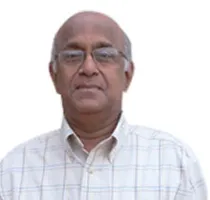The world will be watching Japan in the coming days to observe what changes, if any, will come from the Diet's Upper House elections. Indeed, the ruling coalition led by Prime Minister Shinzo Abe holds a commanding majority in the Lower House, and is expected to win a comfortable majority in the House of Councillors too. Other than achieving political unity, Abe must use this rare period of political solidarity to pass essential legislative bills while also moulding a national consensus for any constitutional amendments. As such, Japan has the possibility of initiating some major reforms since the post-World War II era. Whether such reforms occur will rely on the actions Prime Minister Abe takes in the coming months.
At the moment, it is possible to predict what will immediately follow Sunday's election. Although the LDP is expected to gain control of the Upper House, it will not gain the two-thirds majority which is needed for amending the Japanese Constitution. Rather, we can expect to see two outcomes from the elections. First, the previously divided parliament that stalled Japanese politics will not be there. As such, it will become feasible for Prime Minister Abe to comfortably pass economic, energy, and other legislative bills through both the Houses. Second, the LDP will no longer have to worry about elections for another three years. Indeed, with both the Houses in LDP's control, Abe can formulate his political and economic agenda in a more relaxed way.
Although Abe has been known to propose hawkish policies in the past, experts and scholars are skeptical on how quickly he can embark on them. Currently, there are two modifications under his contemplation. The first is that of Article 9, which eliminates Japan's right to wage war and establishes constraints on developing a military force. Due to the changing geostrategic environment in the Asia-Pacific region, Abe feels that Japan must have the capability to defend itself to a certain extent and develop a responsibility to the overall stability of the region.
The United States too has been encouraging Japan in recent years to take a more proactive role in the international community and function as a responsible partner. With restrictions lifted, Japan has the opportunity to engage the international community like a "normal" nation and expand cooperative strategic efforts. One specific issue raised by Abe refers to a hypothetical situation whereby when a U.S. vessel is attacked at sea, Japan, due to legal constraints, is not in a position to extend appropriate assistance to the United States. By amending Article 9 of the Constitution, Abe believes Japan will be in a position to correct that "insane" situation and be an active supporter.
The second revision which Abe is currently eyeing relates to Article 96. This article is responsible for any amendments to the Japanese Constitution, requiring a two-thirds majority in both Houses followed by a national referendum to pass. This difficult process has hampered any attempts to amend the Japanese Constitution. If Abe is able to alter this, then what is needed is a simple majority rather than a two-thirds majority for constitutional amendments. But this has aroused serious skepticism in the minds of several analysts that a simple majority could open the floodgates for frequent constitutional amendments. Many people have also expressed their fear that Abe , instead of facing Article 9 squarely ,is using Article 96 as a shortcut.
To achieve any success in the realm of constitutional amendments, it will require Abe to overcome several more domestic and external hurdles. Within Japan, the general populace still holds onto extreme forms of pacifistic and anti-nuclear sentiments emanating from the days of Hiroshima and Nagasaki and accelerated further since the Fukushima tragedy. These sentiments are also very strong within his own party as well as in his coalition partner, the New Kômeitô. The leaders of the New Kômeitô have voiced their strong commitment to Article 9 of the Constitution. Even the New Restoration Party has not advocated immediate constitutional reforms. Therefore, it is very necessary for Abe to make serious efforts to mould a national consensus on this question.
Besides the domestic factors, Japan's immediate neighbours, in particular China and the two Koreas, will be closely watching the developments after the election. The problems connected with the interpretations of history still remain a sensitive issue in their relations and Abe can ill afford to make any miscalculations.
Abe also should take care when detailing the reasons why constitutional reforms are needed. While talking about the external threats, he should be very careful not to unnecessarily cause provocations to China and North Korea. He should not create the impression that the amendments are being used to only target China. It is also necessary for Abe not to project himself as a right-wing nationalist, especially when he is mobilising efforts to make Japan a normal state.
Overall, it can be noted that a landslide victory by the LDP in the Upper House will allow Abe to plan and execute his legislative measures smoothly. But on constitutional reforms, he should make serious efforts to mould a national consensus which may be somewhat time-consuming. As it has been noted, Abe faces obstacles both domestically and externally to these reforms. In order to successfully implement any changes and garner support, the Prime Minster must be able to explicitly state his intentions and his vision of Japan to the Japanese people and international community. How he goes about this process will have a great bearing on the level of stability and development in the Asia-Pacific region.
(Prof K.V. Kesavan, Distinguished Fellow, Observer Research Foundation, is presently a Public Policy Scholar at the Woodrow Wilson International Center for Scholars and Julien Teel is a Scholar Intern at the Wilson Center)
The views expressed above belong to the author(s). ORF research and analyses now available on Telegram! Click here to access our curated content — blogs, longforms and interviews.

